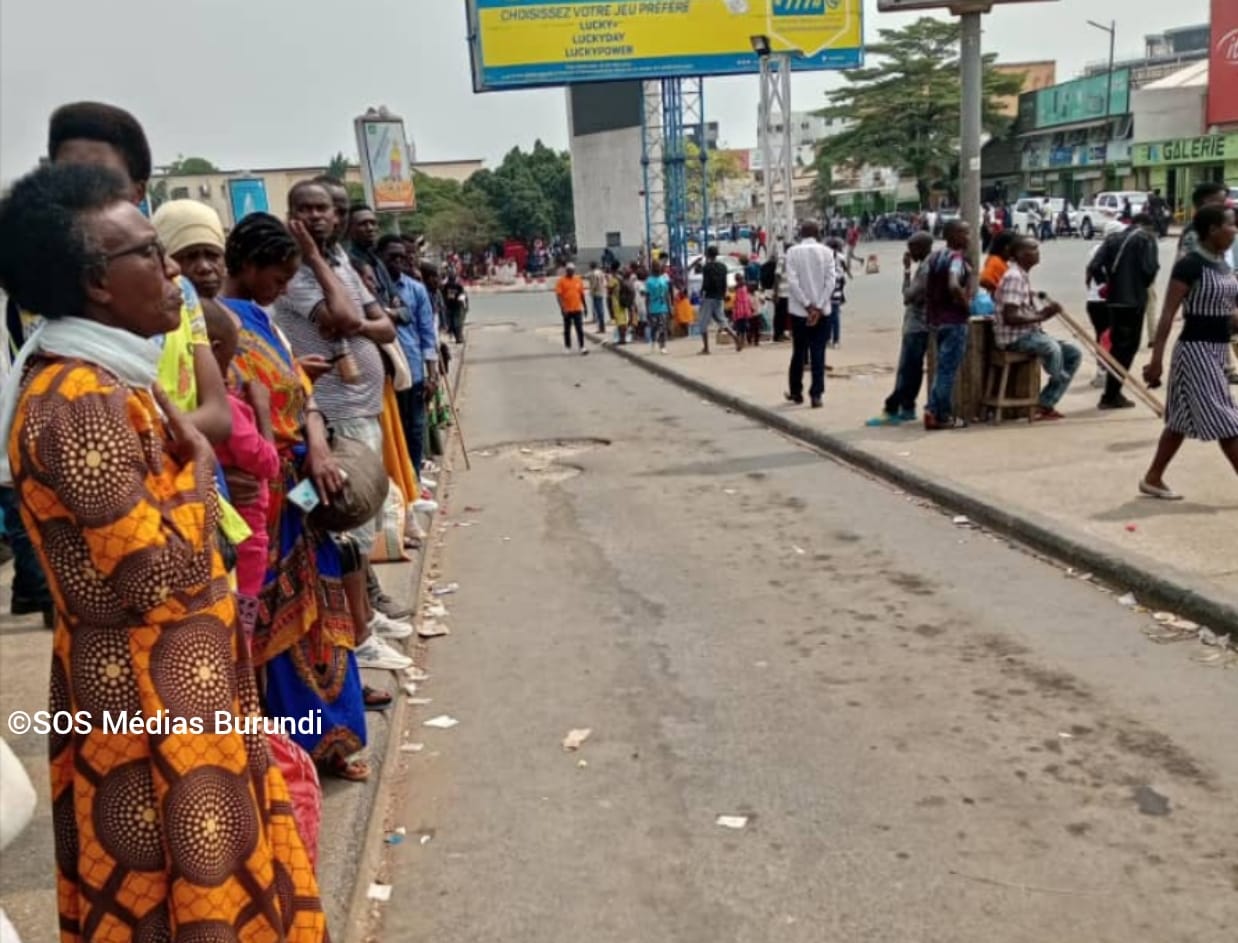Bujumbura: will the lack of fuel go so far as to break up households?

The fuel shortage in Bujumbura town strongly affects household economy, making women suffer and triggering disputes among families because of this situation. Some men accuse their wives of mismanagement.
INFO SOS Médias Burundi
Sylvane works in down town but as she considers her salary is too low, she has to ask her partner for travel expenses.
She indicates she cannot give up this job, because although her salary is meager, she has other service benefits such as contributions for health care to the Civil Service Mutual Fund (MFP) and for retirement at the INSS, the National Institute of Social Security.
The problem today is that travel costs are not stable due to the lack of fuel.
She can come to work by bus at the normal price of 600 Burundian francs and return home with a taxi for 5,000 to 7,000 francs.
She thus finds herself forced to pay for her travel with expenses intended for other household expenses, resulting in disagreements with her husband.
Carine also complains.
« I can’t give up my job even if my monthly income only covers transportation to work. But my husband is starting to tell me to stay at home because I’m not bringing in anything. »
Scholastique, who raises her three children alone, says she doesn’t know how to cope.
“Will it take popular protest for our leaders to understand what we are going through ?” she asks angrily.
The same feeling of revolt is displayed by women met in the queue for transport buses to the northern neighborhood of Bujumbura.

A woman holding a child in her arms in the empty bus parking lot serving the north of the economic capital Bujumbura with hundreds of other passengers, July 9, 2024 (SOS Médias Burundi)
All these women converge on the idea that following the lack of fuel, they are very destabilized in the management of the meager funds allocated to household expenses, which creates tensions within the couple.
“It’s a very difficult situation that affects families,” says Stéphanie.
« Who will say that we are living beyond our means! We are forced to pay exorbitant prices for a taxi to get home, while the salary has not changed. There are also outlying neighborhoods, very far from the city center where we cannot walk home every day, while we cannot leave work either,” she adds.
An analyst of the situation indicates the most worrying fact is that we do not see how this crisis will end. However, he suggests a possible solution.
“Perhaps if the country seriously engage itself in the extraction of the mines lying dormant in its basement and resold them for foreign exchange, the Burundian people could finally see the end of the tunnel.”
————
Hundreds of passengers, including women, wait for a bus for several hours, in vain, in the parking lot serving the north of the commercial city Bujumbura, July 9, 2024 (SOS Médias Burundi)

